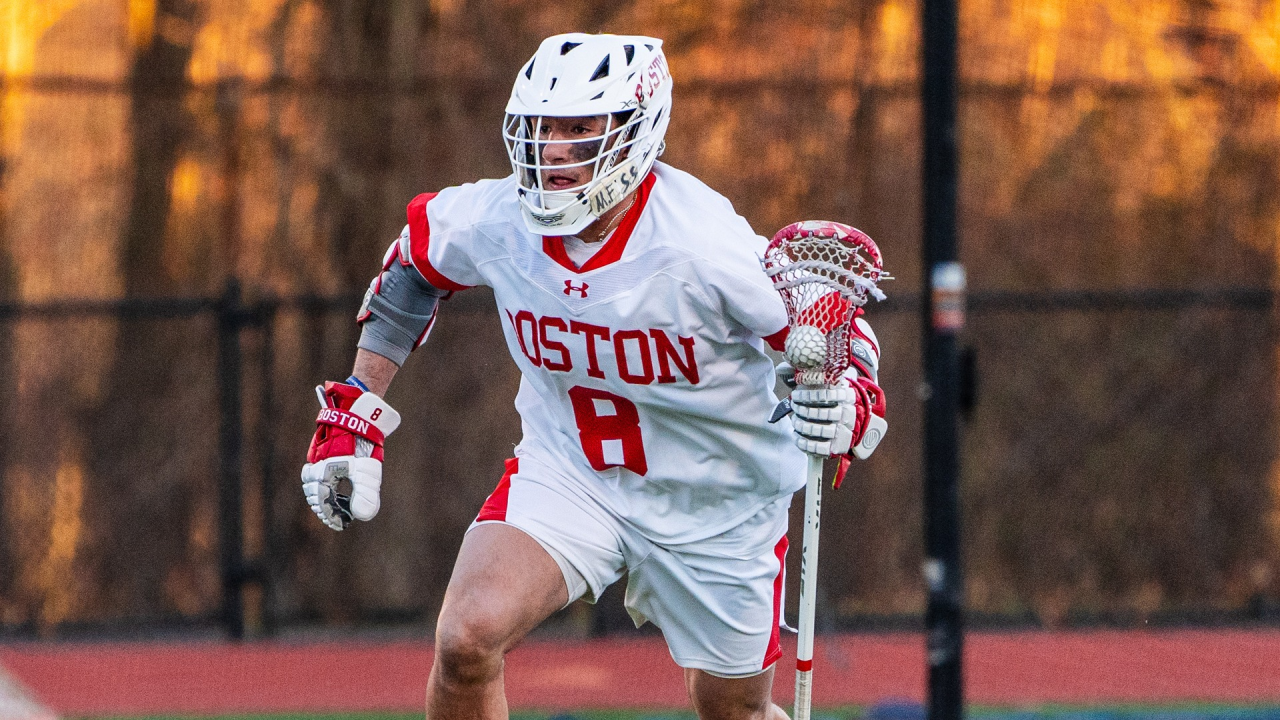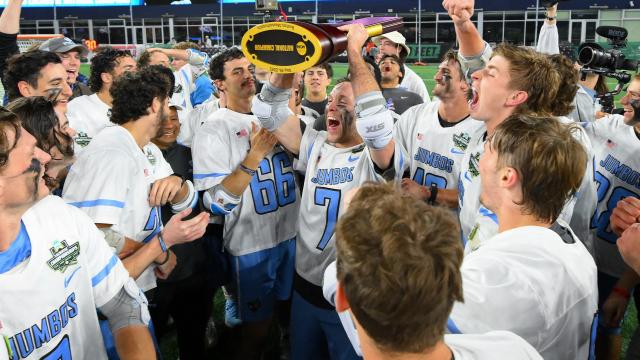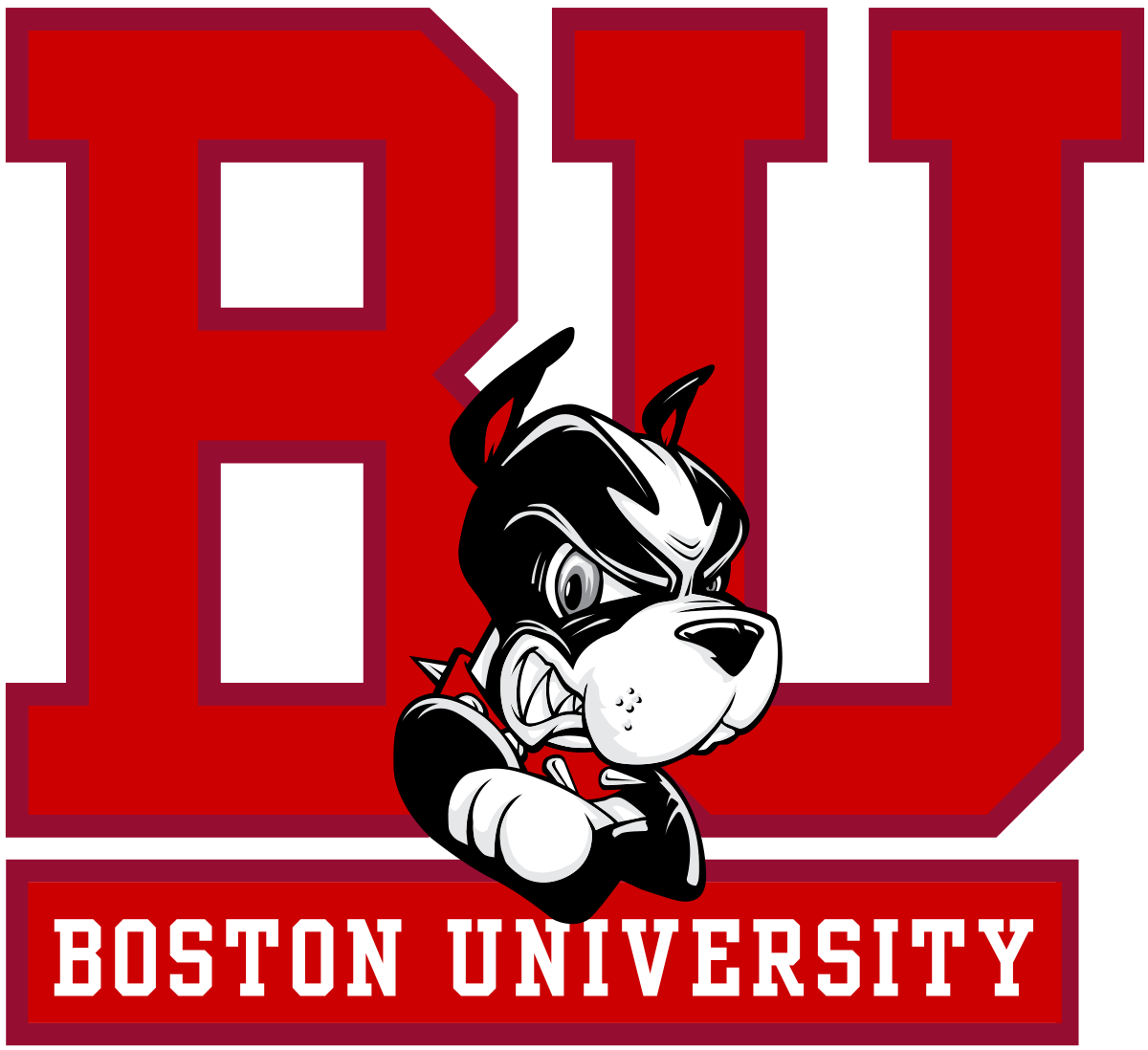
Small Tweaks Have Boston U in Favorable Position
Boston University coach Ryan Polley looks around the lacrosse landscape and sees fifth-year graduate students thriving at a second school. Not a day goes by when he isn’t thankful so many of the freshmen from the Terriers’ 2020 season stuck around for an extra year.
Experience, though, taught him and his program that it isn’t as easy as bringing everyone back for another ride and getting the desired results.
Boston U (7-3) finds itself tied atop the Patriot League with three weekends left in the regular season. It is coming off an impressive stretch in which it dealt Army its first loss, played Duke to a one-goal game on the road in a storm and then flattened Holy Cross 22-6 three days later.
And it’s come thanks to both preseason and midstream tweaks that put the Terriers in position to make a push for their second NCAA tournament appearance in three years.
For starters, there’s a basic verbiage choice: Using “seniors” as a catch-all description for anyone in their final year of eligibility whenever possible.
“I think that’s helped, just this mindset that there’s no split between the two groups,” Polley said. “Just personality-wise, I think there’s a little bit more synergy and compatibility. Last year, we just had a lot of personalities. The fifth years essentially were the team that led us to a Patriot League championship. Our seniors were the most talented class we had ever recruited. So, there was a leadership/talent thing that had to be figured out.”
This is hardly a problem confined to Boston U, nor one rooted in the shortcomings of any specific person. The COVID era — and the bonus years of eligibility created by the NCAA’s blanket waiver for all spring sport athletes whose 2020 season was cut short — has made several aspects of roster management more challenging for coaches.
Divvying up the same amount of playing time to a larger roster is the most obvious difference. Balancing leadership opportunities and responsibilities is another.
And then there’s the extra year of a similar if not identical routine, something that may have been wearing on some of the older Terriers by the time they dropped to 3-2 with a 16-9 loss to Navy on March 2.
“We do a lot of the same things,” Polley said. “We’ve had a lot of success and a lot of things have worked for us, so we’re not just going to change things to change things. It does get a little stale, a little monotonous, but at the end of the day, each game needs to get better, and I think the senior group realized they needed to practice harder. They needed to compete more, and the results would take care of themselves.”
The effort expended during practice improved, and so did the quality of the practices. But something even more subtle flipped at that point for Boston U.
After embracing the 10-man ride that made it an absolute menace for most opponents to deal with the last two years — even using that high risk/high reward approach in overtime against Lehigh in 2022 — there wasn’t as much verve to the scheme early this season.
Did the Terriers need to be a more conventional team? Or did the extra possessions created by the 10-man outweigh the goal they were bound to give up with an empty net every two or three games.
“We had to make a decision after Navy — were we going to be committed to our identity or were we going to be kind of half-in with the 10-man?” Polley said. “The 10-man is something you can’t just be half-in. I think, me included, as a coaching staff, we weren’t as dedicated as we were.”
Boston U ultimately stuck with its script. It beat Bucknell and Loyola, then caused 11 turnovers in its 14-9 defeat of Army. The Terriers close non-conference play Tuesday afternoon against Yale and can earn the top seed in the Patriot League tournament for the third year in a row if they win their final three conference games and Navy drops one of its last three.
As expected, a group of grad students that includes attackmen Louis Perfetto (29 goals, 25 assists) and Vince D’Alto (26 goals, 22 assists), defenseman Patrick Morrison (team-high 18 caused turnovers) and long pole Roy Meyer (14 caused turnovers, 37 ground balls) has played a prominent part in the team’s surge over the last month.
Meanwhile, that group’s ability to blend with the team’s fourth-year players is an element that’s stood out to those around the program.
“Our real seniors are doing a great job of complementing and leading when needed,” Polley said. “I think they’re in a really hard spot. They didn’t get a lot of opportunity as juniors to lead. Now as seniors, the majority of our most talented kids come back, and there’s not a ton of leadership moments. But when we really need them, they’ve done a really good job.”
Patrick Stevens
Patrick Stevens has covered college sports for 25 years. His work also appears in The Washington Post, Blue Ribbon College Basketball Yearbook and other outlets. He's provided coverage of Division I men's lacrosse to USA Lacrosse Magazine since 2010.

Related Articles





